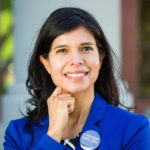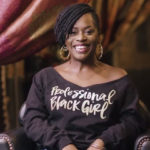Song, dance, tears for Mandela in South Africa
By CHRISTOPHER TORCHIA and JASON STRAZIUSO
Associated Press
JOHANNESBURG (AP) _ Themba Radebe spun slowly in a circle.
First he pointed his cellphone camera at a group of children chanting Nelson Mandela’s name as they waved posters of the anti-apartheid champion. Then pivoting to his right, Radebe aimed his camera at a swaying group of adults who sang in Zulu while rocking and clapping.
A day after Mandela’s death at 95, South Africans of all colors erupted in song, dance and tears Friday in emotional celebrations of the life of the man who bridged this country’s black-white divide and helped avert a race war.
“I don’t think Mr. Mandela belonged to black people,” said Alex Freilingsdorf, a Toyota executive at a Soweto dealership. “He belonged to South Africa.”
Freilingsdorf and other white South Africans mingled among the hundreds of blacks gathered outside a home where Mandela lived as a young lawyer in the rough and tumble Soweto township.
The mood was simultaneously celebratory and somber at the impromptu street festival where Radebe filmed scenes to share with his family.
“I’m sorry, I’m too emotional. The tears flow too easily,” said the balding 60-year-old, his eyes sparkling with tears as he reflected on how South Africa’s race relations have improved _ “not perfect, but much better” _ compared with his childhood in the black township.
“This is a celebration of the death, because we knew he was an old man,” Radebe said. “He brought a lot of changes to our community, because I grew up in apartheid. It was a very bad situation.”
At a service in Cape Town, Archbishop Desmond Tutu, a Nobel laureate like Mandela and himself a monumental figure in the struggle against apartheid, called on South Africa’s 51 million people to embrace the values of unity and democracy that Mandela embodied.
“God, thank you for the gift of Madiba,” Tutu said, using Mandela’s clan name.
“All of us here in many ways amazed the world, a world that was expecting us to be devastated by a racial conflagration,” Tutu said as he recalled how Mandela helped unite South Africa as it dismantled the cruel system of white minority rule, and prepared for all-race elections in 1994.
In those elections, Mandela, who spent 27 years in prison, became South Africa’s first black president.
At Mandela’s home in the leafy Johannesburg neighborhood of Houghton, where he spent his last sickly months, a multi-racial crowd paid tribute.
“What I liked most about Mandela was his forgiveness, his passion, his diversity, the impact of what he did,” said Ariel Sobel, a white man who was born in 1993, a year before Mandela was elected president. “I am not worried about what will happen next. We will continue as a nation. We knew this was coming. We are prepared.”
As a dozen doves were released into the sky, people sang tribal songs, the national anthem, God Bless Africa _ the anthem of the anti-apartheid struggle _ and Christian hymns.
Many wore the traditional garb of the nation’s Zulu, Xhosa and other ethnic groups.
“He will rule the universe with God,” proclaimed a poster raised aloft by a mourner.
President Jacob Zuma announced a schedule of ceremonies expected to draw huge numbers of world dignitaries and ordinary mourners.
Mandela’s body is to lie in state from Wednesday through Friday after a memorial service at the same Johannesburg stadium where he made his last public appearance in 2010 at the closing ceremony of the soccer World Cup. He is to be buried in his rural childhood village of Qunu on Dec. 15, after a state funeral.
“We call upon all our people to gather in halls, churches, mosques, temples, synagogues and in their homes for prayer services and meditation, reflecting on the life of Madiba and his contribution to our country and the world,” Zuma said.
The White House said President Barack Obama and first lady Michelle Obama would visit South Africa next week to participate in memorial events, though no precise dates were given.
Mandela was a “very human person” with a sense of humor who took interest in people around him, said F.W. de Klerk, South Africa’s last apartheid-era president. The two men negotiated the end of apartheid, finding common cause in often tense circumstances, and shared the Nobel Peace Prize in 1993.
Summarizing Mandela’s legacy, de Klerk paraphrased Mandela’s own words: “Never and never again should there be in South Africa the suppression of anyone by another.”
In Mandela’s hometown of Qunu in the wide-open spaces of Eastern Cape province, residents consoled each other as they mourned the death of South Africa’s most famous citizen.
On Vilakazi Street in Soweto, where Mandela lived as a young man, 26-year-old Vathiswa Nongogo brought her 3-year-old daughter Konwabo to soak in the celebratory atmosphere. The crowd was mostly black, but mourners both white and black said Mandela transcended race.
“The feeling is genuinely the same among the white people and the colors,” said Nongogo, who is black. “And the political division doesn’t appear to exist today.”
The late leader’s grandson, Mandla Mandela, said he was strengthened by the knowledge that his grandfather is finally at rest.
“All that I can do is thank God that I had a grandfather who loved and guided all of us in the family,” Mandla Mandela said in a statement. “The best lesson that he taught all of us was the need for us to be prepared to be of service to our people.”
Helen Zille, leader of South Africa’s official opposition party, the Democratic Alliance, and premier of the Western Cape, the only province not controlled by the African National Congress party, agreed.
“We all belong to the South African family _ and we owe that sense of belonging to Madiba. That is his legacy.”
___
AP reporter Ray Faure contributed to this report.










